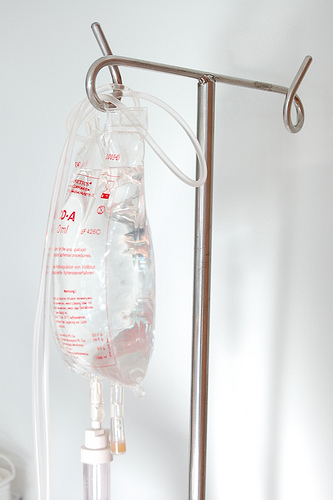 Perhaps you have heard stories about people who are checked into a hospital and develop an infection while there. Or perhaps you have heard of the person with a minor infection that develops quickly into a systemic infection. All too often in these kinds of cases, the infection can move quickly to sepsis and ultimately even to death. Each year more than a million people develop sepsis, a multiple organ or systemic infection that causes the body to start shutting down altogether. In as many as half the cases of sepsis that develop, the patient actually dies because this runaway infection simply is not detected early enough. It is most common among adults over age 65, people with compromised immune systems and hospitalized patients.
Perhaps you have heard stories about people who are checked into a hospital and develop an infection while there. Or perhaps you have heard of the person with a minor infection that develops quickly into a systemic infection. All too often in these kinds of cases, the infection can move quickly to sepsis and ultimately even to death. Each year more than a million people develop sepsis, a multiple organ or systemic infection that causes the body to start shutting down altogether. In as many as half the cases of sepsis that develop, the patient actually dies because this runaway infection simply is not detected early enough. It is most common among adults over age 65, people with compromised immune systems and hospitalized patients.
If you are a caregiver to an older person or someone with a compromised immune system, you may be the best person to see the warning signs. That is because the warning signs can be so subtle that a health care provider not familiar with how a patient is normally may not detect the small changes that can be the hallmark of sepsis. If your loved one develops an infection, be on the lookout for two of more of the following symptoms which may be the warning signs of sepsis:
· Infection accompanied by a high fever or a very low fever, often accompanied by a chill or trembling.
· Hypotension or very low blood pressure in a patient who has no history of low blood pressure.
· Elevated heart rate – typically anything above 90 beats per minute.
· General disorientation which may appear almost like a mild dementia or confusion about their surroundings or why they may be in the hospital.
· Shortness of breath, rapid breathing or even hyperventilation which may be caused by fluid building up on the lungs.
· Skin that is warm to the touch or what may appear as a heat rash.
· A white blood count reported by the provider, but one that is unusually high or low.
Most of these warning signs are what you as a caregiver can observe, but some may require you asking the nurse or physician charged with your loved one’s care. And as in any case, you as a caregiver should be actively asking questions about anything you do not understand. Rarely will a patient identify their condition as sepsis, especially if the condition causes confusion.
Charlotte Bishop is a Geriatric Care Manager and founder of Creative Case Management, certified professionals who are geriatric advocates, resources, counselors and friends to older adults and their families in metropolitan Chicago. Please email your questions to ccbishop@creativecasemanagement.com.



